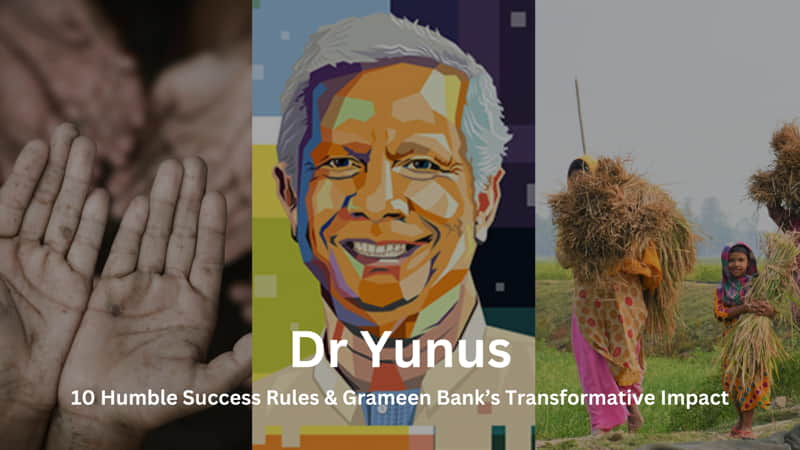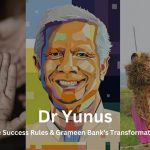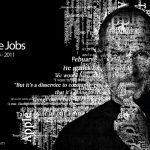Dr. Muhammad Yunus stands as one of the world’s most influential social entrepreneurs—a visionary whose innovative approaches to microfinance have redefined poverty alleviation. A Nobel Peace Prize laureate, Bangladeshi economist, and founder of Grameen Bank, Dr. Yunus has dedicated his life to empowering the poorest communities through accessible financial services. His groundbreaking concepts in microcredit have inspired global initiatives, reshaping how we view economic empowerment and social business.
In this comprehensive article, we delve into Dr. Yunus’s top ten humble success rules, update his enduring philosophies with fresh perspectives, and explore in detail the transformative financial services of Grameen Bank through case studies. We also answer frequently asked questions regarding his life, projects, and legacy, providing updated facts and figures to ensure a current understanding of his impact on social business and poverty elimination.
The Top Ten Humble Success Rules by Dr. Muhammad Younas
1. Have Confidence
Dr. Yunus emphasizes the importance of genuine confidence—not only in oneself but in others. He advocates for showing respect, trust, and unwavering belief in the potential of every individual. By initiating the process of confidence without expecting immediate reciprocity, you build lasting relationships and create an environment of mutual respect. Modern leadership studies affirm that trust and respect are fundamental to sustainable success in both business and community development.
Key Insight: Confidence forms the bedrock of every impactful relationship. When leaders trust their teams, innovative ideas flourish and resilience is built, even in the face of adversity.
2. Be Simple
In a world driven by materialism and complex goals, Dr. Yunus reminds us to embrace simplicity. A simple, purposeful life fosters inner peace and sharper focus, eliminating distractions that often derail progress. His teachings encourage a life that values purposeful achievements over ostentatious displays of wealth.
Modern Perspective: In today’s fast-paced digital era, simplicity not only reduces stress but also increases productivity. Minimalism in business processes and lifestyle choices can yield substantial economic efficiencies and personal satisfaction.
3. Challenge Things
Daring to challenge conventional wisdom is a recurring theme in Dr. Yunus’s philosophy. His own journey into microfinance was marked by skepticism from established bankers, who believed that the poor were not creditworthy. By daring to challenge these prejudices, he opened up a world of opportunities for millions.
Contemporary Relevance: In an era where disruptive innovation is celebrated, questioning norms is key to unlocking breakthroughs. Entrepreneurs and innovators are encouraged to step out of their comfort zones, challenge existing systems, and pave the way for transformative change.
4. Find Your Inspiration
For Dr. Yunus, inspiration did not come from celebrated economists or billionaires, but from the resilient poor—especially the women in rural Bangladesh—whose determination to improve their lives served as a powerful catalyst. Their everyday struggles and steadfast commitment inspired him to develop microfinance systems that would ultimately transform lives.
Reflective Note: Today, social entrepreneurs around the globe draw inspiration from grassroots communities. By listening to and learning from those facing daily challenges, innovators can create solutions that are both relevant and sustainable.
5. Re-Invent Your Purpose
Life’s true purpose transcends monetary gains. Dr. Yunus urges us to look beyond material wealth and redefine our mission in life as one of building, caring, and sharing. His work through Grameen Bank is a testament to how reimagining purpose can lead to a legacy that enriches society as a whole.
Fresh Perspective: In current discussions on corporate social responsibility and ethical business practices, re-inventing one’s purpose has become essential. Organizations that align profit with social impact are more resilient, attract committed employees, and earn consumer trust.
6. Start Very Small
The concept of beginning with small, manageable steps is integral to Dr. Yunus’s philosophy. While dreaming big is important, initiating action with modest beginnings is what ultimately builds an empire. The first small step is the foundation upon which larger, more ambitious projects are constructed.
Practical Application: In today’s startup ecosystem, many successful ventures began in garages or small offices. The lesson here is clear: small steps, when consistent and well-directed, can lead to monumental achievements.
7. Don’t Wait for a Certificate
Traditional education systems often delay the entrepreneurial spirit. Dr. Yunus believes that one should never wait for formal qualifications to embark on innovative ventures. Instead, learning should be driven by passion and curiosity, with formal education serving as a tool rather than a prerequisite for success.
Updated Insight: With the rise of online learning platforms and non-traditional educational resources, many modern entrepreneurs are bypassing traditional degrees in favor of real-world experience and self-directed learning.
8. Aim to Create Jobs
A central tenet of Dr. Yunus’s success rules is to focus on job creation rather than job seeking. Rather than being confined by the traditional employment model, aspiring entrepreneurs should cultivate a mindset of being job creators. This proactive approach can lead to economic growth and empower communities.
Contemporary Example: Many social enterprises today focus on creating sustainable jobs in underprivileged areas. By adopting a job creator mentality, businesses can drive economic development and foster social equity.
9. Don’t Limit Your Imagination
Dr. Yunus encourages a limitless approach to imagination—one that is unrestrained by current limitations or conventional thinking. Innovation often comes from the freedom to dream without boundaries. He likens this imaginative process to crafting a piece of social fiction that can transform reality.
Modern Relevance: In the digital age, creative problem solving and out-of-the-box thinking are more valued than ever. Industries ranging from tech to healthcare thrive on innovation that challenges the status quo.
10. Don’t Be Money Centric
Finally, Dr. Yunus warns against an overemphasis on monetary success. While financial stability is important, it should not be the sole measure of achievement. Human endeavors should also prioritize social impact, community well-being, and ethical practices.
Current Trends: Today, more companies are integrating social impact metrics alongside profit metrics. This holistic approach to success is increasingly embraced by investors, consumers, and employees alike.
Grameen Bank Financial Services and Impact Case Studies
Revolutionizing Microfinance
Grameen Bank, founded by Dr. Yunus in 1976, has become synonymous with microfinance and social business innovation. Its core mission is to provide small loans to impoverished individuals—particularly women—who have traditionally been excluded from the formal banking sector. With an emphasis on trust-based lending rather than collateral, Grameen Bank has successfully empowered millions to start or expand small businesses, thus breaking the cycle of poverty.
Impact Case Study: Empowering Rural Women
One of the most significant achievements of Grameen Bank has been its focus on rural women. In many villages across Bangladesh, women who received microloans have transformed not only their personal lives but also their communities. For instance, consider the story of a small village in the Rajshahi district where a group of women used microcredit to start a cooperative business producing handmade crafts. Over time, the cooperative grew, providing employment to dozens of women and generating sustainable income that improved living standards across the community. This case underscores how microfinance can be a powerful tool for social change when tailored to the unique needs of marginalized groups.
Financial Services Tailored to the Underserved
Grameen Bank’s financial services extend far beyond simple microcredit. The institution offers a suite of products designed to cater to the diverse needs of its clients, including savings programs, micro-insurance, and emergency loans. These products are customized to empower borrowers to manage risks, invest in education and healthcare, and build a safety net for unforeseen circumstances. Such comprehensive financial inclusion has been instrumental in reducing poverty and driving local economic development.
Technological Integration and Digital Innovation
In recent years, Grameen Bank has embraced digital technologies to extend its reach and efficiency. Mobile banking platforms and digital payment solutions have been introduced to enhance service delivery, particularly in remote areas where traditional banking infrastructure is limited. This technological pivot not only streamlines financial transactions but also provides clients with real-time access to their accounts, thereby fostering transparency and financial literacy.
Global Influence and Replication
The success model of Grameen Bank has transcended national boundaries. Countries across Asia, Africa, and Latin America have adopted similar microfinance frameworks, tailoring them to local contexts. As of the latest reports, the global microfinance industry has seen a significant increase in outreach, with total outstanding microcredit reaching an estimated $300 billion worldwide. This expansion is a testament to the enduring legacy of Dr. Yunus’s vision and the innovative blueprint provided by Grameen Bank.
The Social Business Model
Central to Grameen Bank’s philosophy is the concept of social business—a model that prioritizes social impact over profit maximization. Unlike conventional businesses, social businesses reinvest profits into community development projects, education, and healthcare initiatives. This model has proven effective in creating a sustainable ecosystem where economic growth and social welfare go hand in hand. Case studies from various regions highlight how social businesses have contributed to significant improvements in quality of life, reduced unemployment, and enhanced community cohesion.
Frequently Asked Questions (FAQ)
How did Dr. Yunus get the Nobel Peace Prize?
Dr. Muhammad Yunus was awarded the Nobel Peace Prize in 2006 for his pioneering work in microfinance and microcredit. His innovative approach to lending to the poor, especially in rural Bangladesh, demonstrated that financial inclusion could lead to sustainable peace by alleviating poverty and empowering marginalized communities. The Nobel Committee recognized his efforts in creating economic and social opportunities for the disenfranchised, setting a global example for combating poverty.
How old is Dr. Yunus?
Dr. Muhammad Yunus was born on June 28, 1940, which makes him 85 years old as of 2025. His decades-long career reflects a lifelong commitment to social entrepreneurship and poverty alleviation, continuously evolving to address contemporary challenges.
What is Dr. Yunus’s net worth?
Unlike conventional business magnates, Dr. Yunus’s success is measured not by personal wealth but by his transformative impact on society. While exact figures on his net worth are not widely publicized, his legacy is defined by the millions of lives changed through his microfinance initiatives rather than by financial accumulation.
What new projects is Dr. Yunus involved in?
Dr. Yunus remains actively involved in social business and sustainable development initiatives. His recent projects focus on leveraging technology to expand financial inclusion, fostering social enterprises in emerging markets, and promoting innovative solutions to environmental challenges. These endeavors are in line with his vision of using business as a force for social good.
Are there any upcoming projects from Dr. Yunus?
Yes, Dr. Yunus continues to explore new frontiers in social entrepreneurship. Upcoming projects include collaborations with technology firms to enhance digital banking services in underserved regions and new social business ventures aimed at combating climate change. These projects reflect his ongoing commitment to evolving his methods to meet contemporary social and economic challenges.
Has Dr. Yunus held any government positions?
While Dr. Yunus is a respected figure in both global and national circles, he has not held a formal government position. Instead, he has influenced policy and economic reform through his work with international organizations, such as his service on the Board of the United Nations Foundation, and by directly engaging with governments to promote financial inclusion and social business.
When did Dr. Yunus leave Bangladesh?
Dr. Yunus has always maintained strong ties to Bangladesh, the country where Grameen Bank was founded. Although he spends significant time abroad to advance his social business initiatives, his heart remains in Bangladesh, where his ideas continue to inspire local and national development.
Which political party is Dr. Yunus affiliated with?
Dr. Yunus is not formally affiliated with any political party. His work has always been focused on social entrepreneurship and poverty alleviation, rather than partisan politics. His initiatives have transcended political boundaries, earning respect across the political spectrum for their impact on social welfare.
Why is Dr. Yunus famous?
Dr. Yunus is renowned globally for his groundbreaking work in microfinance and for founding Grameen Bank, an institution that has revolutionized access to credit for the poor. His pioneering concepts have not only earned him the Nobel Peace Prize but have also set a blueprint for social business and economic empowerment worldwide.
Is Dr. Younus known as an atheists’?
While Dr. Yunus is celebrated for his economic and social contributions, he is not primarily known as an atheist’s. His recognition stems from his practical, innovative approaches to solving real-world problems rather than from pursuits in art or aesthetics.
What is the connection between Dr. Yunus and Bill Gates?
Both Dr. Yunus and Bill Gates are influential figures in global philanthropy and innovation. While their fields of focus differ—social entrepreneurship versus technology and global health—their paths have intersected through collaborative initiatives aimed at improving lives in underprivileged communities. Their shared commitment to social impact has often placed them in the same conversations about sustainable development and ethical business practices.
Has Dr. Yunus collaborated with prominent figures like Messi?
Although Dr. Yunus’s work primarily revolves around social business and microfinance, his influence spans across diverse sectors. While there have been occasional references and public interactions with global icons from different fields, his collaborations are mostly centered on social initiatives and economic empowerment rather than celebrity endorsements.
What books has Dr. Yunus authored?
Dr. Yunus has written several influential books on social business and microfinance. Notable titles include Banker to the Poor and Building Social Business, which articulate his philosophies and the transformative potential of financial inclusion. These works continue to inspire social entrepreneurs and policymakers worldwide.
What is Dr. Yunus’s educational background?
Dr. Yunus earned his undergraduate degree from Dhaka University and later obtained a Ph.D. in economics from Vanderbilt University in the United States. His academic pursuits laid the foundation for his groundbreaking work in economics and social finance, influencing his lifelong commitment to eradicating poverty.
Can you share details about Dr. Yunus’s family?
Dr. Yunus is known to be a private individual when it comes to his family life. While public details about his personal life are limited, it is known that his family has been a strong support system throughout his career, encouraging his unwavering dedication to social change.
What are the latest news updates on Dr. Yunus?
Dr. Yunus continues to be active on the global stage. Recent news highlights include his involvement in launching new digital banking initiatives and partnerships aimed at expanding the reach of microfinance. His ongoing efforts to innovate and collaborate across sectors keep him relevant in discussions on sustainable development and social entrepreneurship.
What are some notable quotes from Dr. Yunus?
Dr. Yunus is known for his many inspiring quotes, such as his assertion that “poverty is not created by lack of resources but by the lack of imagination.” His words consistently challenge conventional thinking and encourage innovative approaches to solving societal challenges.
The Lasting Legacy of Grameen Bank and Social Business
Grameen Bank’s impact extends far beyond the confines of traditional banking. By championing financial inclusion and creating an ecosystem where small loans spark big changes, the bank has become a model for sustainable development. The social business model—where profits are reinvested to achieve social objectives—continues to inspire governments, NGOs, and entrepreneurs worldwide. With digital innovations reshaping its service delivery, Grameen Bank remains at the forefront of financial empowerment, ensuring that even in today’s high-tech world, the core values of trust, simplicity, and social responsibility prevail.
Grameen Bank’s case studies have demonstrated measurable outcomes: increased household incomes, higher school enrollment rates, and improved health indicators in communities once trapped in cycles of poverty. The replication of its model across various continents is a living proof of Dr. Yunus’s belief that even the smallest financial intervention can trigger transformative social change.
Conclusion
Dr. Muhammad Yunus’s top ten success rules are not just principles for individual prosperity; they are a blueprint for building a more inclusive, innovative, and compassionate society. His life and work serve as a constant reminder that true success lies in empowering others and transforming communities. Through Grameen Bank and his numerous social business ventures, Dr. Yunus has redefined what it means to be successful in a world where economic opportunity should be accessible to all.
Today, as the global microfinance industry continues to grow and evolve, Dr. Yunus’s ideas remain remarkably relevant. His emphasis on confidence, simplicity, and the willingness to challenge norms continues to inspire entrepreneurs and policymakers alike. As we navigate an increasingly complex world, his enduring legacy offers a roadmap not only for business success but for achieving lasting social impact.







